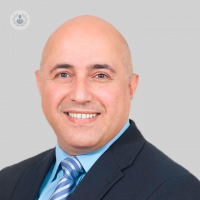Is an epididymal cyst serious?
Autore:If you find a lump in your testicles, it can be a serious cause for concern. Luckily, the most common cause of a lump is a benign condition called epididymal cyst. We spoke to leading urologist Mr Aza Mohammed to find out what an epididymal cyst feels like and whether it needs treatment.

What is an epididymal cyst?
Epididymal cysts are fluid-filled scar attached to the epididymis which are the tubules asscoaieted with the testes. It is found in 20 to 40 per cent of the male population.
What does an epididymal cyst feel like?
Epididymal cysts can be felt as lumps in the scrotum. They are usually asymptomatic but can cause discomfort when they get bigger. If they reach large sizes, they can result in pain in the testis on that side as a result of the pressure and weight of the enlarged cyst. In some cases, this can interfere with activities of daily living such as exercise.
It is essential that any scrotal lump is urgently investigated with a testicular ultrasound to ensure that EC are differentiated from more sinister scrotal lumps, such as testicular cancer.
Can epididymal cysts affect your fertility?
There is no evidence to suggest that epididymal cysts are associated with the risk on infertility. On the other hand, surgical removal of the cysts themselves and the associated healing and fibrosis can lead to obstruction – and that will block the passage of sperms.
Can epididymal cysts go away on their own?
Epididymal cysts don’t disappear spontaneously. They can either remain the same size or get bigger.
Is surgery ever performed to remove an epididymal cyst?
The main indication for surgical treatment of EC is large symptomatic cysts that are affecting the patient’s quality of life. In small and asymptomatic EC, surgery is not usually necessary as a result of the benign nature of the condition.
Mr Aza Mohammed is a specialist in the treatment of epididymal cyst and male urological problems. To book an appointment with a urologist for epididymal cyst, click here .


